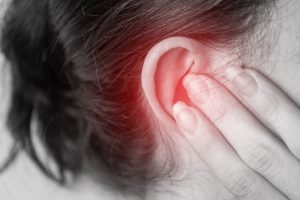Key Risks of Untreated TMJ Disorders
Chronic Jaw Pain
Chronic jaw pain is one of the most prevalent symptoms individuals with TMJ disorders experience. This discomfort may begin as a minor annoyance but can escalate into severe pain over time. When left untreated, the persistent pressure and strain on the jaw can hinder daily functions like eating and speaking. Opportune treatment is essential to avoid a decline in your overall quality of life.
Joint Damage
The temporomandibular joint is a complex structure integral to essential jaw movements. Continuing to neglect TMJ issues may lead to significant joint damage. This impairment can manifest as difficulties in opening and closing the mouth or result in permanent jaw alignment issues. Preventing joint deterioration should be a priority when dealing with TMJ disorders.
 Tooth Loss
Tooth Loss
Another risk of untreated TMJ disorders is excessive wear on the teeth, which can eventually result in tooth loss. The teeth’ movement is intricately connected to the temporomandibular joint; thus, TMJ disorders can lead to abnormal tooth wear. At Ambis Dental, we emphasize the need for early intervention, which can preserve tooth health and function.
Sleep Disorders
TMJ disorders may complicate sleep quality by contributing to sleep apnea, a condition characterized by interrupted breathing during sleep. The dysfunction in the temporomandibular joint can influence the muscles controlling airway functionality, leading to problematic symptoms such as snoring. Seeking treatment ensures that underlying causes of sleep disturbances are addressed well.
Mental Health Issues
The discomfort experienced as a result of TMJ disorders can also adversely affect mental health. Persistent pain can lead to chronic stress, anxiety, and depression. Individuals suffering from loss of quality sleep linked to TMJ discomfort may find it challenging to concentrate or manage daily activities. At Ambis Dental, we stress the importance of managing physical health to maintain overall well-being.
Chronic Headaches and Migraines
Patients with TMJ disorders frequently report experiencing migraines. This condition can significantly hinder daily activities due to the debilitating nature of the headaches. Promptly treating TMJ can lead to the reduction of these incurring headaches, resulting in improved daily functioning.
Advanced Neurological Symptoms
 Long-term TMJ disorders may develop into more complex neurological issues. Patients frequently report tinnitus, vertigo, and balance problems. The close proximity of the temporomandibular joint to cranial nerves can result in referred pain and sensory disturbances throughout the face and neck.
Long-term TMJ disorders may develop into more complex neurological issues. Patients frequently report tinnitus, vertigo, and balance problems. The close proximity of the temporomandibular joint to cranial nerves can result in referred pain and sensory disturbances throughout the face and neck.
Tinnitus, characterized by a persistent ringing or buzzing in the ears, is associated with untreated TMJ disorders. Tinnitus can be exacerbated when TMJ issues are not addressed, leading to further complications and discomfort. Seeking timely treatment can alleviate these auditory disturbances.

 TMJ disorders
TMJ disorders Tooth Loss
Tooth Loss Long-term TMJ disorders may develop into more complex neurological issues. Patients frequently report tinnitus, vertigo, and balance problems. The close proximity of the temporomandibular joint to cranial nerves can result in referred pain and sensory disturbances throughout the face and neck.
Long-term TMJ disorders may develop into more complex neurological issues. Patients frequently report tinnitus, vertigo, and balance problems. The close proximity of the temporomandibular joint to cranial nerves can result in referred pain and sensory disturbances throughout the face and neck.